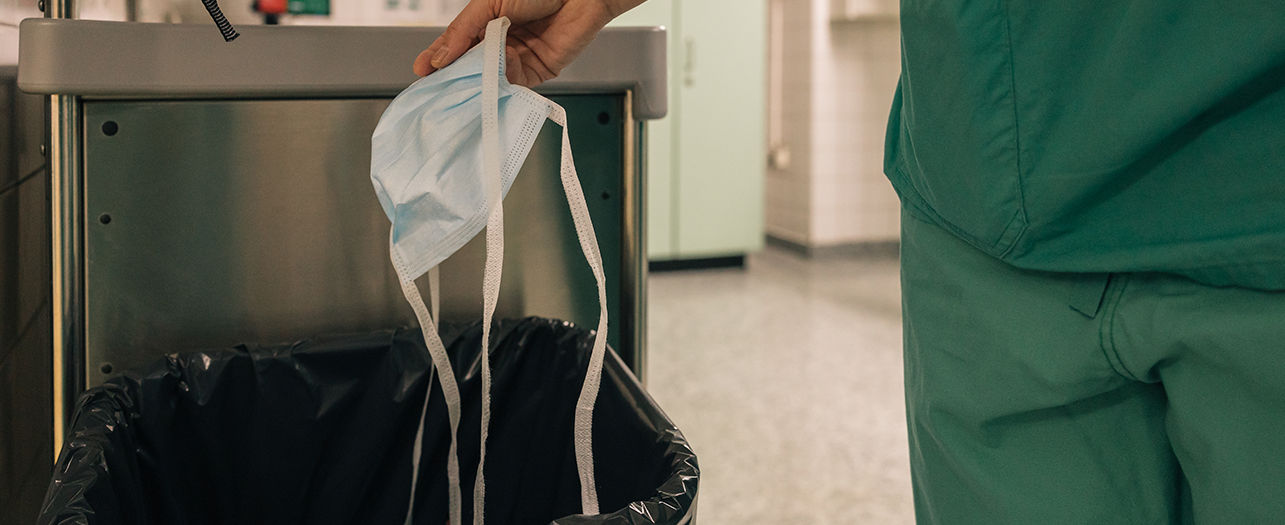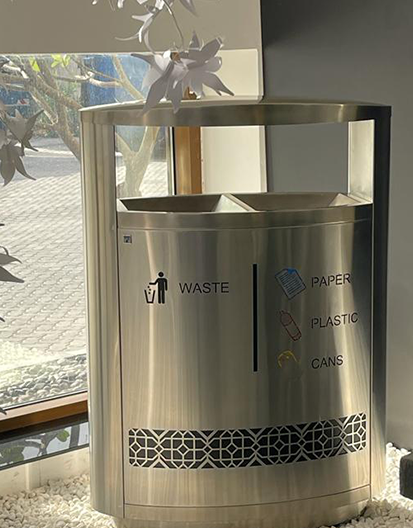Hospitals produce a wide range of waste every day. Managing that waste correctly protects patients and staff, reduces infection risk, and limits environmental harm. In fast-moving UAE cities, a practical approach to hospital waste management keeps facilities safe, compliant, and more sustainable.
Why A Clear System Matters
A reliable hospital waste management system begins with simple, consistent rules applied across the facility. Source segregation and documented routes from ward to treatment stop mix-ups and lower disposal costs. Following national and international hospital waste management guidelines ensures regulatory compliance and protects public health.
Key Elements Of Hospital Waste Management
Segregation at source
Place labelled bins where waste is produced. Using a hospital waste management colour code helps staff and cleaners instantly recognise sharps, infectious material, recyclables, and general refuse.
Safe storage and transport
Keep regulated waste in locked, ventilated areas away from patient flow. Ensure liners are tied, sharps containers are never overfilled, and transfers follow written procedures.
Staff training and accountability
Short visual guides, routine refreshers, and clear escalation steps make a correct practice routine. Empower staff to report issues and offer improvements.
Recycling and reduction
Identify safe recyclable streams and keep them out of clinical waste. Small changes, such as improving cafeteria disposables and reducing unnecessary single-use items, reflect waste management best practices.
Technology and monitoring
Sensor-equipped bins and smart compactors reduce unnecessary collections. Fill-level signals and remote monitoring cut collection trips and lower CO2 emissions.
Implementing Practical Waste Management Practices
- Post simple sorting charts in wards and utility rooms.
- Schedule frequent pickups for high-traffic areas such as emergency and operating theatres.
- Use sealed containers for infectious waste and partner with licensed medical waste handlers for treatment.
- Run regular audits to verify compliance with hospital waste management guidelines and spot training gaps.
POWER Bear’s Range of Designer Bins
Hospitals are clinically pristine spaces that must prioritize hygiene, sanitation and transparency by all means. That’s where POWER Bear’s range of designer bins comes into the picture, with aesthetic designs, color-coded options and custom labelling. From multi-stream recycle bins to galvanized steel bins, POWER Bear offers a diverse selection of bins for hospital waste management.
Practical Tips For Peak Demand
Hospitals face surge conditions during outbreaks or mass-casualty events. Be ready to add temporary compacting bins, increase collection frequency for regulated streams, or create short-term compliant staging areas. The mobility and capacity of solar compactors make them especially useful during these periods.
Measuring Success And Improving
Track waste volumes by category, set achievable reduction and recycling targets, and share progress with staff. Small wins better tray management in cafeterias or selective swaps to reusable items where safe add up and demonstrate the value of routine improvements.
Building A Culture Of Responsibility
Good hospital waste management depends on people as much as on equipment. Clear roles, consistent hospital waste management colour code signage, visible leadership support, and feedback loops encourage safe habits and continuous improvement.
Maintenance And Compliance
Choose equipment that is easy to service and backed by local support. Regular servicing of compactors, checks of seals and liners, and timely spare-part availability prevent leaks and prolong service life. When hospitals combine clear procedures with low-maintenance solutions, they meet regulatory requirements while advancing sustainability goals.
Conclusion
Clean hospitals are safer hospitals. By combining clear segregation, adherence to hospital waste management guidelines, staff training, and the right technology, UAE healthcare facilities can manage clinical waste more safely and sustainably. Practical waste management practices, supported by reliable solutions such as the multi-stream recycle bins from POWER Bear, reduce collection frequency, cut emissions, and keep clinical areas orderly and compliant.



